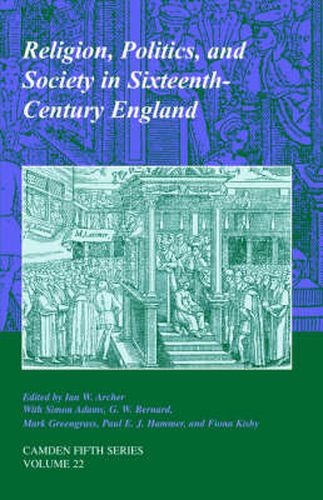Religion, Politics, and Society in Sixteenth-Century England

Religion, Politics, and Society in Sixteenth-Century England
This collection of hitherto unpublished material sheds important new light on the English court and its relationship with a wider political society in the sixteenth century. The ‘Journall’ of political events covering 1547-52 and 1559-1562, possibly by the ‘commonwealth man’ John Hayles, offers arresting insights on court politics, foreign affairs and events in the life of London. It is published alongside a related account of the rivalry between the Dukes of Somerset and Northumberland. Court religious ceremonial is illustrated through an edition of regulations for the royal chapel. The memoir of Jean Malliet, sent to England to solicit a loan for the beleaguered city of Geneva in 1582-3, demonstrates the ‘Calvinist international’ at work. A tranche of letters from Sir Robert Cecil to Sir Christopher Hatton offers fresh material on court politics in this period.
This item is not currently in-stock. It can be ordered online and is expected to ship in approx 2 weeks
Our stock data is updated periodically, and availability may change throughout the day for in-demand items. Please call the relevant shop for the most current stock information. Prices are subject to change without notice.
Sign in or become a Readings Member to add this title to a wishlist.


